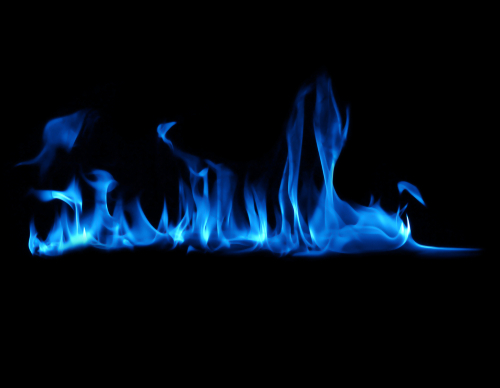
Posted: August 5, 2024
 Are you a homeowner pondering energy options for your Hudson Valley home? If so, understanding the BTU of propane could be your key to a cozy home.
Are you a homeowner pondering energy options for your Hudson Valley home? If so, understanding the BTU of propane could be your key to a cozy home.
Kimlin Energy is the region’s leader for dependable propane delivery and expert propane appliance installation and service. We also help you convert your home to propane so you can enjoy all that is has to offer, from efficient home and water heating to cooking and grilling.
We’ll break down the basics of BTUa, explain its importance in home heating, and show how propane stacks up as a reliable fuel choice. Buckle up for a deep dive into the world of energy efficiency, cost savings, and effective heating solutions!
BTU, or British Thermal Unit, is a measure of energy. One BTU is the amount of energy required to raise the temperature of one pound of water by one degree Fahrenheit. While it’s an old-fashioned term, it’s still highly relevant in today’s world, especially when it comes to heating your home.
When we talk about the BTU of propane, we’re referring to the amount of energy contained in propane fuel. Knowing the BTU of propane can help you determine how much fuel you’ll need to heat your home efficiently. This information is crucial for making informed decisions about your heating system.
Understanding BTU is essential for homeowners because it directly impacts your heating costs and efficiency. A higher BTU means more heat output, which translates to a warmer home with less fuel consumption. By grasping this concept, you can optimize your heating system and make better choices for your household.
Propane is a versatile and popular fuel used in many homes, particularly in rural areas or regions like the Hudson Valley where natural gas lines might not be available. It’s commonly used for heating, cooking, and even powering backup generators.
One of the biggest advantages of propane is its high energy content. With a BTU rating of around 91,500 per gallon, propane packs a powerful punch. It also emits fewer greenhouse gases than other fossil fuels, making it an environmentally friendly option.
Propane is widely available and can be stored in large tanks on your property, giving you the flexibility and convenience of accessing fuel when you need it. This makes it an excellent choice for homeowners looking for a dependable heating solution.
To determine how much propane you’ll need, you first need to assess your home’s heating requirements. Factors such as the size of your home, insulation quality, and local climate all play a role in this calculation.
A simple formula to estimate your home’s BTU needs is to multiply the square footage of your home by a BTU value that represents your climate zone. For instance, in the Hudson Valley, you might use a BTU per square foot value of around 50-60.
If you have a 2,000 square-foot home, your calculation would look something like this:
2,000 sq. ft. x 55 BTU/sq. ft. = 110,000 BTUs.
This means you’d need about 110,000 BTUs to adequately heat your home.
Environmental factors: The climate in your area significantly affects your BTU needs. Colder climates require more BTUs to maintain a comfortable indoor temperature. Other environmental factors, such as wind and humidity, can also influence your heating requirements.
Equipment efficiency: The efficiency of your heating system and other propane appliances plays a crucial role in determining your BTU needs. High-efficiency furnaces and boilers convert more fuel into usable heat, reducing the overall BTUs required to heat your home. In fact, today’s high-efficiency propane heating systems have efficiency ratings as high as 98%, meaning that 98 cents of every dollar worth of propane your furnace or boiler uses will go towards heat and not be lost in combustion.
Insulation: Well-insulated homes retain heat better, requiring fewer BTUs to maintain a comfortable temperature. Properly sealing windows and doors can also make a significant difference.
Natural gas: When compared to natural gas, propane has a higher BTU per gallon. Natural gas typically has about 100,000 BTUs per therm (roughly equivalent to 100 cubic feet), while propane delivers around 91,500 BTUs per gallon. This makes propane a more potent heating option.
Electricity: Electric heating systems often have lower BTU outputs compared to propane. While electricity is measured in kilowatt-hours (kWh), converting it to BTU reveals that propane offers a more concentrated source of energy. This can lead to cost savings on your energy bills.
Heating oil: Heating oil is another common heating fuel, but it generally has a lower BTU output per gallon compared to propane. Heating oil offers about 138,500 BTUs per gallon, making propane a competitive alternative in terms of energy efficiency.
Because propane is an efficient fuel, you may find that your heating costs are lower compared to other options. While the initial setup costs for propane heating systems can be higher, the long-term savings on fuel can make it a cost-effective choice.
Ready to make the switch? Contact Kimlin Energy today and get started on the path to adding propane to your home!